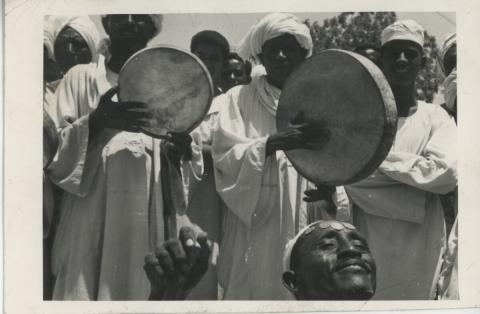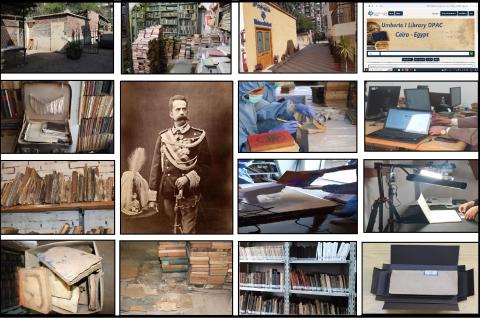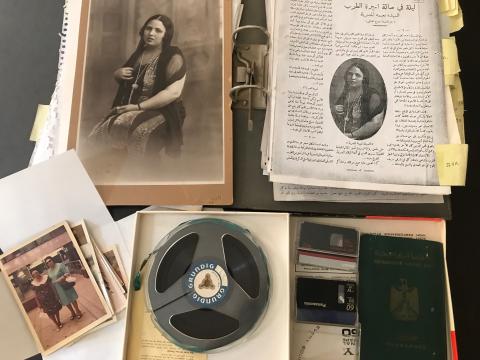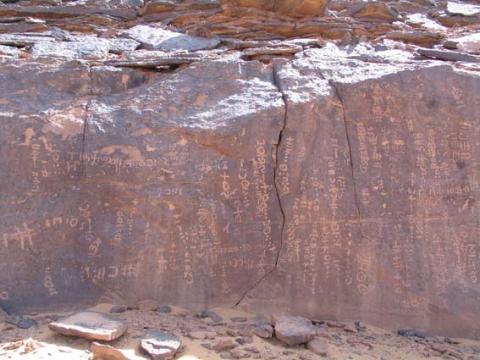Aims and objectives
The trade union movement has played a central role in Sudan's national politics. It is expected to play a critical future role in building and sustaining a democratic system in post-civil war Sudan. During the last 60 years, the movement produced substantial amount of data. This data is an important source of knowledge to study the modern history of Sudan and to understand the social forces that shaped it. It is also significant in the political debates about the transition of Sudan from dictatorship to democracy and the essential role of trade unions and other civil society organisations in that process.
The project will focus on the feasibility of the recovery of the endangered archival documents of Sudanese trade unions. It will look at practical ways to deposit or to relocate the vulnerable archival material, if that is reasonable. Also the pilot will assess the technical possibility of copying of such materials for the wider research community - inside Sudan through depositing it in a publicly accessible centre and outside Sudan through depositing a copy in the British Library.
Many ex-leaders of the movement or their families keep important rare documents at home such as manuscripts of books, leaflets, photographs, tapes, videos and minutes of meetings. The main reason for that is the long period that the trade union movement worked underground - trade union activists worked underground for 37 years, during three military regimes. This is an important source of knowledge, where most of these personal archival materials are not available in any other location. These archival materials are scattered in different towns inside Sudan such as Port Sudan , Wad Madni, El Obied and Atbara . However the capital Khartoum is the main source of individual and union collections.
Some rare documents have been identified from four important periods: the colonial era and especially the period between 1946 to 1953; the first military regime 1958-1964; the second military regime 1969-1985 and the last military regime 1989-2005. These documents are not available in any official archives and are not kept properly.
The signing of the peace agreement in 2005 produced a new political climate where there is a margin of democracy that gives a chance for unrestricted travel and free contacts with ex-union leaders. Also this new climate led many trade union activists to come to the public life after been banned for 17 years. Some of them, even, returned from exile. This may be the last chance to carry out this project, because of the instability of the Sudanese political life.
This project will identify and list all trade union documents that are in danger of extinction. The project focuses on two main sources: individual collections and trade unions' collections. Individual collections consist of documents owned by ex-leaders of trade unions or their families and for these collections, the project plans to identify its period and the topics it covered and made a detailed list for each personal collection. The intention is not at this stage to copy documents, but however, with the consent of the owners, some of the documents that are facing the risk of being lost forever will be copied. Trade unions' collections are documents, from different periods, which were left in storerooms and then neglected. The plan is to identify what is there, discuss with union leaders the importance of their collections and how the project can provide a practical long-term solution to their archives.
Outcomes
This pilot project achieved the following aims:
- An agreement with the Minister of Labour [Sudan Government] was secured to open the collections of the different departments of his ministry for the research team during a future major project. His political weight in supporting this project will obviously be an advantage in its implementation.
- The location of the archival materials of Sudanese trade unions from 1899 to 2005 were traced and the documents of trade unions that were kept at the National Records Office [Khartoum] were listed, with gaps in these documents identified. No other archives, public libraries or academic institutions were found to keep any archival materials related to Sudanese trade unions.
- Arrangements were made with the Sudan Workers Trade Unions Federation, the Sudan Railways Workers Trade Union, the Sudan Farmers Union and the Legitimate Sudan Workers Trade Unions Federation to relocate and/or copy their archival materials.
- A plan for training trade unionists about keeping their archives was devised which would be delivered by staff of the National Records Office [Sudan], academics and a professional digital photographer.
- Initial agreements were secured with 11 families of ex-trade union leaders who have passed away, each holding private collections of documents.
- Lists of ex-trade unionists and ex-trade unions' leaders were compiled and agreements were made to participate in the project.
- A list of the documents of Professor Sidahmed Mahmoud was compiled - the largest personal collection found, of nearly one hundred files of rare documents about different teachers unions from the 1960s.
- A list was compiled of the personal collection of the late Mohamed Salaam, the First President of the Sudan Workers Trade Unions Federation, which contains more than seventy rare documents and trade unions' books.
- An initial agreement was made with the National Records Office [Khartoum] to host a copy of the documents produced during a future major digitisation project.
- A team of volunteers was created who are keen to support the project and to play a role in its implementation.





